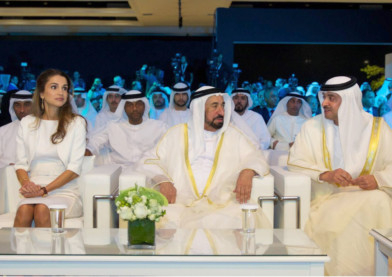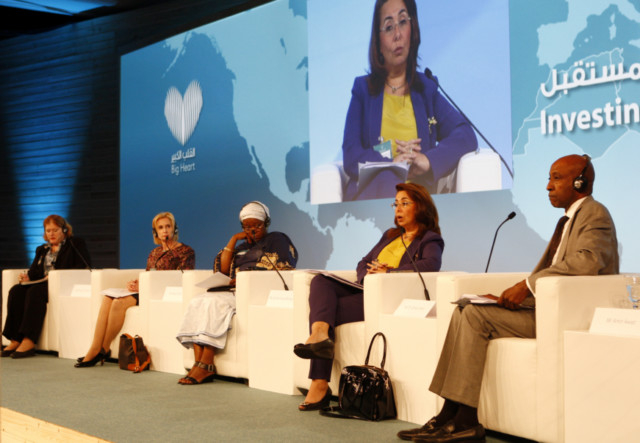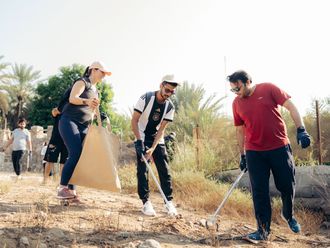
Sharjah
This year has witnessed the largest human displacement since the Second World War, and Syria and other Mena regions are the most affected, Queen Rania of Jordan said at a Sharjah conference on refugee children in the region.
Although a political solution is the only solution to stop the turmoil in the region, immediate aid is needed to protect the 1.8 million refugee children from sexual exploitation, child labour and illiteracy, to name a few.
The ‘Investing in the future: protecting refugee children and adolescents’ conference began yesterday in Sharjah in hopes of helping these refugees.
On its first day, the event brought together over 300 global leaders, government officials and experts with the aim of uniting efforts and drawing up a comprehensive and unified strategy to help refugee children.
His Highness Dr Shaikh Sultan Bin Mohammad Al Qasimi, Member of the Supreme Council and Ruler of Sharjah, said during his welcoming speech that he hopes solutions will come out of the discussions held at the conference. The conference was organised by Big Heart, a Sharjah charity initiative for Syrian refugees and the United Nations High Commissioner for Refugees.
“Such conferences are not new. It is directly related to human nature to try to come up with policies to help such children but unfortunately we still find millions of children in difficult situations where they are forced to flee from their homes to escape war,” Shaikh Sultan said.
Inputs needed
Shaikh Sultan said neighbouring countries and humanitarian organisations have taken in many refugees and provided them with necessary services such as education and health. He hopes that by bringing them to the conference, their efforts will be strengthened, adding that their input is needed to come up with the best strategies to help refugee children.
Queen Rania, who was the keynote speaker at the conference, said almost half of the Syrian people are displaced, and one out of every eight Syrians has left the homeland.
“Eighty-five per cent of displaced people in the world take refuge in neighbouring developing countries, whose limited economic potential constrain their ability to provide from their resources and income. Still, they open their doors, and take in those seeking refuge, sharing their food, security, water, fuel, hospitals, schools and much more.
Queen Rania said Jordan knows this very well because there are more than one million Syrians in Jordan, of which only 613,000 are registered in documents and records. She said the high numbers of Syrian refugees pose a great challenge to Jordan, especially in local host communities.
She said there is a clear deficit in the global humanitarian capacity, the needs are far greater than the support offered.
“The most valuable thing we can offer these children is education, to protect them from loss and despair, and prevent the refugee crisis from crippling their future. When the dust of war settles, today’s children and youth will return to their home countries. Education is their tool to rebuild themselves and then reconstruct their country.”
Antonio Guterres, United Nations High Commissioner for Refugees, shared some alarming figures on the state of the refugees at the conference. He said more than 51 million people worldwide have been uprooted by conflict and persecution and last year, more than 32,000 people were forced to flee every day — more than twice the daily figure only two years ago.
Hardest hit
“The Arab world has been the hardest hit. Many countries across the region, from Mauritania to Yemen, host important refugee populations. But the most challenging displacement crisis confronting today’s world is of course the one triggered by the conflict in Syria and its dramatic spill-over into Iraq.”
He said UNHCR has registered over 3.2 million Syrian refugees in Lebanon, Jordan, Turkey, Iraq and Egypt, the largest refugee population under the UN’s mandate today.
During the opening session, Dr Nabeel Al Arabi, Secretary-General of the Arab League, suggested some solutions that include putting forward an Arab strategy to protect refugee children, raise the effectiveness of national institutions and strengthening regional and international cooperation in building partnerships that benefits the refugees.













